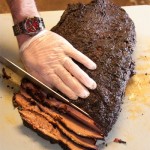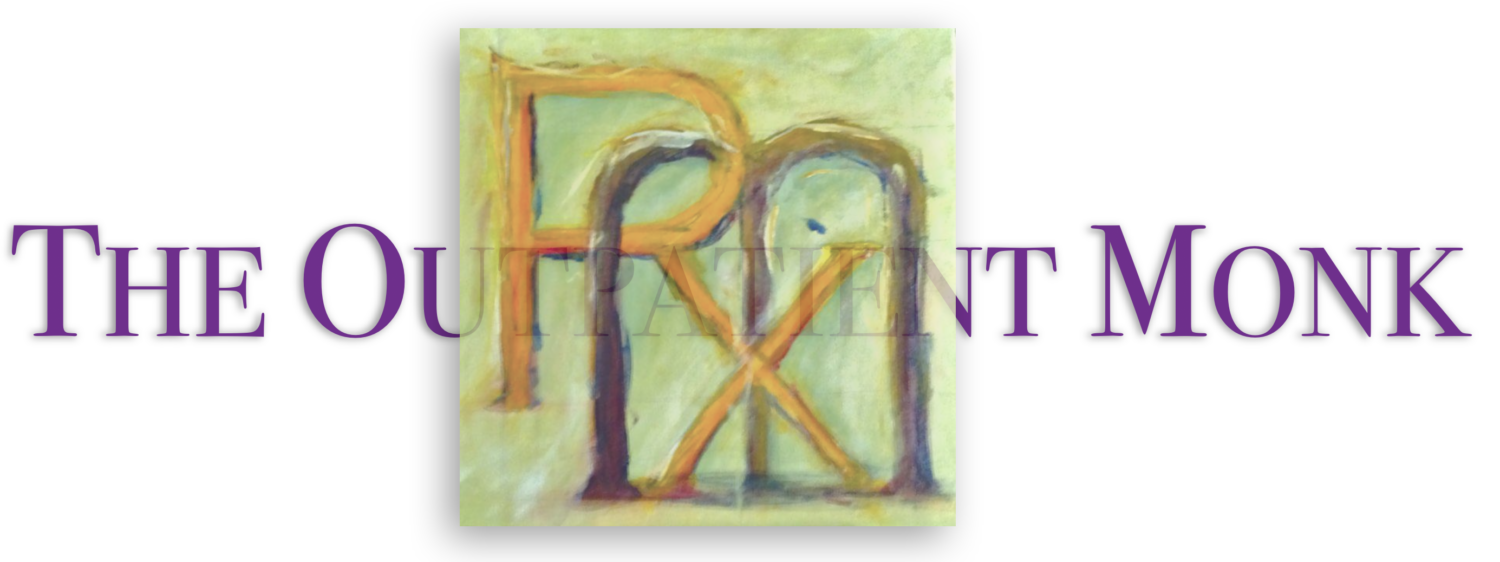 In the story of the loaves and fishes, Jesus takes the little bit of food offered to him from a small boy and breaks it, blesses it and gives it to those who had been following him for days who had become hungry. That small gift ends up feeding several thousand people to the point where there are several baskets full after everyone has eaten. It is another one of the miracles a lot of people love to reference to show Jesus’ supernatural powers. But I spent some time with some friends this weekend that reminded
In the story of the loaves and fishes, Jesus takes the little bit of food offered to him from a small boy and breaks it, blesses it and gives it to those who had been following him for days who had become hungry. That small gift ends up feeding several thousand people to the point where there are several baskets full after everyone has eaten. It is another one of the miracles a lot of people love to reference to show Jesus’ supernatural powers. But I spent some time with some friends this weekend that reminded  me of another reading of that story. It is one with less magic but one that might actually be a bigger miracle.
me of another reading of that story. It is one with less magic but one that might actually be a bigger miracle.
This crowd of people has been following Jesus around the countryside for three straight days and were probably beginning to worry about their supplies. How long were they going to follow? How long would it take them to get back home? Did they really ever want to leave?
Such uncertainty, while exhilarating, can also rouse some fear and suspicion that there wont be enough supplies to get home. Certainly it had to be clear that fewer and fewer people were eating out in the open. Eating in the open, let alone sharing food, would not seem prudent. It could put one at risk of having to share, or worse, just feel guilty for not sharing.
When we begin to fear we wont have enough, we want to conserve but conserving so quickly turns into guarding, hovering and hoarding. Even if the fear of scarcity is just a myth it can kill our sense of generosity. People, for example, don’t go to war over air because there is enough for everyone to have some. Gold, on the other hand, is another matter.
In this story Jesus doesn’t necessarily have to ‘make’ more bread in order for the bread to multiply. There are already a lot of other loaves and fishes on the scene. They are all, however, tucked away. They are hidden, hoarded and protected.
The fear of revealing what we have in front of other people who are hungry, often keeps us hungry as well.
So when Jesus has a little faith in a child who has a lot of faith, things begin to shift. One little kid who doesn’t know better realizes he has food and that it is needed. He shares. Kids can be awfully poor planners in these things. They tend to do what makes sense.
This simple act of genuine faith, of naiveté, inspires us hoarders – maybe even embarrasses us a little. Out come the loaves. There go the fishes. The coats come open and they recline on the grass to share a banquet together. It turns out there was more than enough all along. Sometimes, when there wasn’t enough, God just sent food from heaven. Cool.
But even then, the stuff went bad when it was stockpiled.

The rule at Burning Flipside is that you make sure you have enough for yourself. “Radical Self Reliance,” we call it. It feels counterintuitive to this story and in many ways it is. But there is a another part of the equation, the gift economy. Everyone should bring a little extra to share, something to give away.
I always bring enough to never be hungry but it is shocking to me how much I always bring so much home and yet eat so much. I brought all of my food home this year except one small packet of tuna. Yet I ate like a king. This is not a community driven by the fear of scarcity.
The underlying conviction is that there is going to be enough. Part of the reason we can trust that is that everyone is expected to bring what they need. But part of it is because it is a weekend in which we are used to people wanting to show off their gifts.
Here is the important piece, people want to give. We like to feed each other, we like to take care of each other. I wish you could taste “Scarecrow’s” gourmet slow smoked brisket. I ate better while camping than I have since I have been home.
Sometimes it just takes a little act of faith to realize that, yes, we have more than enough. Despite the bad economy, the threat of thieves or even echoes of the cold war, we have enough – more than enough. Offering up even just a little can keep us all from going hungry with so much food tucked under our coats.
God made the world from the abundance of love. That is one of the most fundamental theological claims of the Biblical story. There is more than enough.
The world has enough resources for all of us to live like royalty, but fear keeps us from living in abundance. Call it greed, call it power-mongering, call it evil. It all sits on the pedestal of fear. It keeps us from getting enough to those who live in genuine scarcity, poverty and need. It also keeps those of us who have a lot from enjoying what we have because we are too busy guarding it and hoarding it. Lose-lose.
Please let’s not waste too much time calling this idea naive. I didn’t write this story, I am just reading it. There is no hidden politic in here, just a story to help unhinge us from the spiritual sickness that shapes so much of our social, and also our political, relationships. Here is the politics, “Perfect love casts out fear.”
While it may seem like the hope of such a world is impossible, by now we must begin to see that the impossible may take a little while. Surely we see this kind of hope on kids playgrounds, at Burning Flipside and at church potlucks. There is always so much left over. Every church potluck is a surely a little echo of Communion. We have more than enough.
This isn’t my story. It is God’s.
Yes, this reading of generosity and abundance does take out some of the sparkle of Jesus making something out of nothing. It does steal the luster of the great magician turning something in to something else. The Bible is already full of those kinds of stories. But telling the story in a way that shows how Jesus used the faith of a little child to inspire a crowd to take care of each other has me wondering which is a more remarkable miracle: multiplying food in a way the supersedes physics, or changing human hearts.
From experience with my own heart, I know which one to pray harder for.




We had a good time sharing meat Sunday night — my husband cut his leftover steak into small pieces and didn’t make it as far as the road with them before being ambushed by willing carnivores, and I found out that the folks who provided karaoke and things for cooling folks down in the heat of the day had someone in camp whose drug of choice was meat, and he was quite appreciative of what I hadn’t been able to finish. I shared cheese, and took a can of my husband’s Coca-cola for someone else who’d been talking about needing caffeine and high-fructose corn syrup an hour earlier.
I also had my quarterly reminder that Hawaiian bread is tasty stuff in another camp during a volunteer shift.
Oh, and I haven’t done anything that would consume the lemon. If our friend who is spending the night doesn’t need it for something else, I may use it to deodorize the garbage disposal tomorrow. It’s been a tangible reminder of the welcome I had under the red tent, which has been nice in its own right, but a lemon lasts only so long. :)